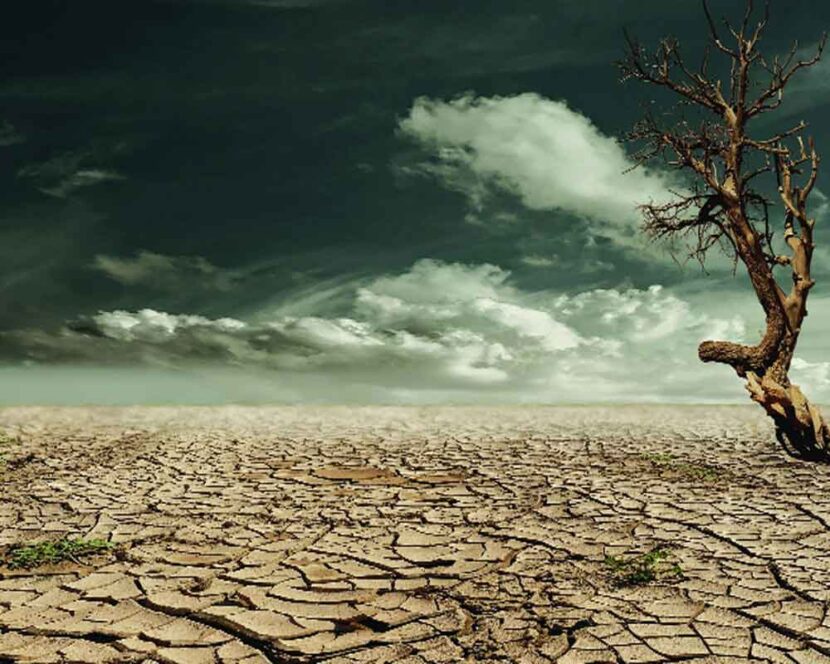With climate change physically impacting a large part of the population in various geographical areas, it also has been impacting mental health from minimal stress and distress symptoms to clinical disorders
Climate change effects causing rising temperatures, heat waves, floods, tornadoes, hurricanes, droughts, wildfires, deforestation, melting of glaciers, disappearance of rivers and desertification, can directly and indirectly cause human pathologies that are physical and mental.
With climate change physically impacting a large part of the population in various geographical areas, it also has been impacting mental health from minimal stress and distress symptoms to clinical disorders. Post-traumatic stress disorder (PTSD), sleep disturbances, depression, anxiety, increased substance use or misuse, and suicidal tendencies are the mental health issues usually related to the after effects of such climatic events which disrupt human life due to death, relocation, lack of resources and support.
The onset of PTSD is generally due to the massive stress and anxiety one has during, immediately after or even sometimes days after the traumatic experience. Forecasts of disasters also make people uncertain, stressed and depressed. The concrete impact of those changes in life causes different types of psychopathological reaction to these events. These factors may lead to inborn defects, may hinder neurodevelopment, be a reason for mental disability and besides cause psychosomatic and neurological disorders.
Heat Waves
Heat weaves are high temperatures lasting some days that are way more than the normal temperatures for a particular place or season. This is one of the effects of climate change caused mainly due to increase in carbon emissions. Physical health, mental health, human well-being, and heat waves appear to be interconnected and the worse is that its intensity and frequency is on the rise.
Extreme heat wave conditions cause deep stress levels, anxiety and various disorders. Heatwaves increase the death rates of people already sick mentally and hence raise the mortality rate. Exposure to such extreme heatwaves during pregnancy is prohibited as it causes lower average birth weight and increases the probability of preterm birth. Besides, being exposed to extreme heat can lead to physical and psychological fatigue.
Wildfires
Wildfires’ effect on the ecosystem is devastating, as a forest’s carbon dioxide storage capacity is forever lost after such a wildfire. It also results in emissions of more carbon dioxide which leads to extreme cases of heatwaves as the temperature rises sharply and also the smoke pollutes the air.
Wildfires cause direct damages to mental health, life and property. Such damages lead to grave symptoms like depression, PTSD, anxiety disorders and panic attacks, sleep disturbances, acute stress disorder, sometimes compulsively repetitive flashbacks, and psychotic disorders.
Deforestation
There has been an enormous loss of forests due to human activity and climate change events. For indigenous populations, deforestation has a deep impact, leading to profound maladaptive disorders and depression. In general, people believe that forests are a source of health and protection from various types of stress disorders. The decrease in forests leads to unhealthier air quality, pollution and deprives humans from natural protection provided by the greenery in forests. A greener and healthy environment leads to better physical and mental health not only for children and working class but also for the vulnerable class that undergoes mental disorders
Floods, Tornadoes, Hurricanes & Cyclones
Global warming leads to an increase in both intensity and occurrence of tropical cyclones, hurricanes, tornadoes and flooding. These events take a severe toll on one’s mental health mainly due to an increase in anxiety and depression. Some storm survivors develop PTSD or other long-term disorders. There might be a relapse for those recovering from disorders of substance-use. These events sometimes destroy power grids and communications networks, halting medical care for vulnerable populations. Besides, there consequences can be feelings of displacement, mourning and psychological stress.
Due to extreme temperatures, there is less or no rainfall for a longer duration and also results in sudden heavy rainfall which causes loss of home, loss of lives of many people, loss of agricultural yield which indirectly causes a pernicious effect on mental health.
Drought
A combination of high temperatures and low precipitation increases the frequency of droughts over the world. The population living in these areas, particularly the farming community, is most exposed to the mental health risks carried by drought or famine.
Long-term droughts and erratic rainfall have been associated with deterioration of economic conditions, reduced social functioning, and psychological distress.
The challenges of climate change will be protracted in the upcoming years. With its grave impact on the mental health of a large part of the population, there is a dire need for psychiatric studies to be conducted, perhaps termed as ‘ecopsychiatry’.
Only recently few terms like ecopsychology, eco guilt, ecological grief, ecoanxiety, etc., have been coined.


